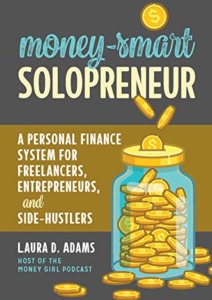No one likes to think about getting sued, but it’s a real risk for entrepreneurs. A lawsuit could come from a disgruntled employee, a dissatisfied client, or someone who slips and falls on your property. That could drain your bank account and jeopardize your business.
While no one can control every business situation or entirely avoid lawsuits, it’s your responsibility to limit risk where possible and keep your business running smoothly. Use the following four tips to protect yourself and your business from getting sued.
1. Have the right business insurance.
The types of insurance you may need for your business depend on your work and potential risks. For instance, if you use a vehicle for business, you likely need commercial auto insurance for you and any employees.
Professional liability insurance, known as errors and omissions (E&O) insurance, protects entrepreneurs from lawsuits related to negligent advice, faulty workmanship, and even copyright infringement.
If you have a small business with fewer than 100 employees, consider purchasing a business owners policy (BOP). It’s a package of coverages that can include property damage, general liability, professional liability, and equipment breakdowns. You can customize a BOP depending on the type of business you run and your potential risks.
2. Invest in a tax-advantaged retirement account.
Another way to protect your assets is by investing in a tax-advantaged retirement account. There are various choices for individuals or the self-employed, such as the following:
- Traditional IRA – is available to anyone with earned income whether investing conventionally or with a crypto IRA. You don’t pay tax on contributions until you take withdrawals in retirement.
- Roth IRA – is available to anyone with earned income that doesn’t exceed an annual limit. You pay taxes on contributions but can take tax-free withdrawals in retirement.
- SEP IRA – is for the self-employed and has tax benefits similar to a traditional IRA but allows high annual contribution limits. If you have employees, you must contribute the same percentage to their retirement accounts as you do your own.
- Solo 401(k) – is for the self-employed with no employees. It’s similar to a workplace 401(k) but allows higher contribution limits.
In some cases, tax-advantaged accounts get protection from creditors in the event of a lawsuit. However, the retirement account laws vary depending on your state. Consult with an attorney to understand the legal protections available for your retirement funds.
3. Separate your personal and business assets.
As an entrepreneur, it’s an excellent practice to keep your personal and business finances separate by having a company bank account, credit card, and insurance. That can help you stay organized and track your transactions, so it’s easier to file taxes and prepare financial statements.
Plus, commingling personal and business funds could put your personal assets at risk if your company gets sued.
4. Create a legal business entity.
If you operate as a sole proprietor, your personal assets are at risk if your business gets sued. However, if you set up an LLC or corporation, your company becomes a separate legal entity, which means only your business assets could be at risk. LLCs offer flexibility and simplicity, while corporations provide additional liability protection.
Consult with an attorney to choose the best legal entity, retirement account, and insurance for your business needs. They can help protect your business and personal assets from a lawsuit or avoid potential legal action.

















Comments